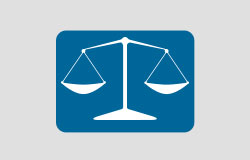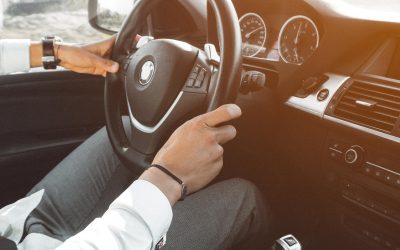
The hardship license is designed to alleviate the burden that a license suspension or revocation can place on your ability to maintain employment, attend school, or access necessary medical care. It recognizes that the inability to drive can cause undue hardship and impact one’s livelihood and well-being.
Under the California Drivers Hardship License laws, you must meet certain eligibility criteria and demonstrate a legitimate need for driving privileges during the suspension or revocation period. The hardship license is typically issued for a limited time and may include restrictions on when, where, and for what purposes you can drive.
A Los Angeles DUI lawyer can help you learn how to get a hardship license and defend your rights throughout the DUI process. You can reach out to us to learn more when you call or fill out our online contact form.
What Is a Hardship License?
A hardship license, also known as a restricted license or a critical need license, is a temporary driving privilege granted by the California Department of Motor Vehicles (DMV) to individuals whose regular driver’s license has been suspended or revoked.
This type of license allows you to drive under specific circumstances, such as for work, education, or medical purposes, despite the suspension or revocation of your regular license.
How Do You Get a California Hardship License?
Obtaining a hardship license in California requires an application process. This process involves a DMV (Department of Motor Vehicles) application, making a $125 fee payment, and providing proof of enrollment in a court-approved DUI school. Additionally, you must demonstrate that you have taken financial responsibility by purchasing SR-22 level insurance.
In some cases, California courts may mandate additional steps, such as enrolling in Alcoholics Anonymous or another substance abuse treatment program. Depending on your circumstances, you may need to provide proof of employment when paying the reissue fee or provide evidence of medical reasons necessitating license privileges.
Navigating the legal complexities of the hardship license application process can be challenging, and seeking legal advice can help ensure you meet all the requirements and protect your rights throughout the process.
What Is SR-22 Insurance?
Driving with a restricted license can affect your insurance. To drive legally, you will need to get SR-22 insurance.
SR-22 insurance is like any other auto insurance policy, except it comes with a certificate of financial responsibility. Technically, the certificate itself is the SR-22 insurance rather than a policy in and of itself.
Still, to acquire an SR-22 form, you must purchase an insurance policy that qualifies as SR-22 coverage. These policies are typically two or three times more expensive than standard insurance policies.
Can Anyone Apply for a Hardship License?
California only allows first-time DUI offenders to apply. Some other eligibility requirements include:
- Must still have all driving privileges, meaning that the court cannot revoke their license for another illegal act
- Must have submitted to the sobriety test they were asked to complete at the time of their arrest
- Must be age 21 or older
Understanding these requirements can help DUI offenders determine whether or not they qualify for a hardship license. However, there are times when the DMV will deny people who do meet all of these criteria if they apply.
Work with a DUI defense lawyer to complete your application to ensure the highest chance of success.
Can I Get a Hardship License if My DUI Injured Someone?
Acquiring a license will be far more difficult if someone sustained injuries in a DUI accident that you caused. The court system sees people who cause injuries as more likely to engage in reckless driving while drunk in a motor vehicle.
Can a Commercial Driver Apply?
Generally, individuals operating a commercial vehicle at the time of their DUI arrest cannot apply for a restricted license. You cannot use this type of license for commercial driving purposes.
When Should I Start Applying for a Hardship License?
Depending on your specific circumstances, a DUI attorney can provide advice on when best to apply for a hardship license. Generally, you should begin applying:
- After police have confiscated your driver’s license
- After the DMV issues an Order of Suspension
- After you acquire a Temporary License
Following the issuance of the order, you may use a temporary license for thirty days of driving. Once the thirty days have expired, the DMV will suspend your license. Depending on your situation, the suspension may carry on for months or years.
Starting the application can get you back on the road and back to your normal way of life.
Can You Lose Your Hardship License?
Yes. Losing your hardship license creates a domino-like effect, causing difficulties and increased monetary penalties when it is time to retrieve your regular license.
Because this type of license has limitations, you can lose your hardship license if the police catch you driving your motor vehicle to places you are not supposed to. You can also lose it by failing to complete a DUI driving program.
Are There Alternatives to a Hardship License?
California provides an alternative way to continue operating a motor vehicle after a DUI conviction. The statewide ignition interlock device (IID) pilot program allows you to operate a motor vehicle with limited restrictions.
You may select this option to drive your vehicle without restrictions. Using an IID, you can drive to places outside of your work, school, and DUI treatment programs. This valid license allows you to operate a motor vehicle as long as you perform a blood alcohol content (BAC) test each time you drive.
You also have the option of using public transportation to get around when your driving privileges are mandatorily suspended.
What Can a DUI Attorney Do?
If you hire a DUI defense attorney, they can represent you in a DMV hearing or criminal court. They can also help explain what paperwork and fees must be submitted to get a hardship license quickly and with minimal effort.
In many cases, your DUI attorney will also tell you the best time to begin applying for a hardship license, increasing your chances of getting one so you can operate your motor vehicle as a restricted driver.
You should be able to get your hardship license following a DUI conviction. Find out how to get proof of employment, proof of enrollment in DUI courses, and the rest of the paperwork required for this application.
Learn More About the California Hardship License Law By Contacting a Lawyer Today
California’s driver’s hardship license law tells you how to get a hardship license. A DUI lawyer can help you determine your eligibility and navigate the process of applying for a restricted license.
You can learn more about your license privileges and next steps by contacting Los Angeles DUI Attorneys today.







